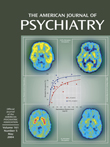Abstract
OBJECTIVE: Auditory selective attention involves top-down modulation of sensory processing to selectively filter relevant from irrelevant information. Patients with schizophrenia have deficits in auditory selective attention, but whether these attention deficits are evident at the earliest stages of auditory processing or emerge later in the processing stream is unknown. METHOD: Event-related potentials were used to assess the integrity and time course of auditory attention in schizophrenia during a cross-modal selective attention task. A random sequence of equiprobable loud and soft speech sounds and bright and dim checkerboard patterns occurred every 800 to 1200 msec. A button press was required in response to soft speech sounds in the auditory attention task and to dim checkerboards in the visual attention task. Event-related potentials were recorded from 15 patients with DSM-IV schizophrenia and 16 age- and gender-matched healthy comparison subjects. RESULTS: As early as 50 msec, both patients and comparison subjects showed evidence of cross-modal selective attention. These attention effects were sustained until 300 msec in comparison subjects but were no longer evident in patients by 100 msec. CONCLUSIONS: Schizophrenia patients implemented an early attentional filter but failed to sustain selective attention later in the processing stream. This suggests that initially intact executive control of auditory attention cannot be sustained in schizophrenia, perhaps implicating dysfunction in frontotemporal pathways.



